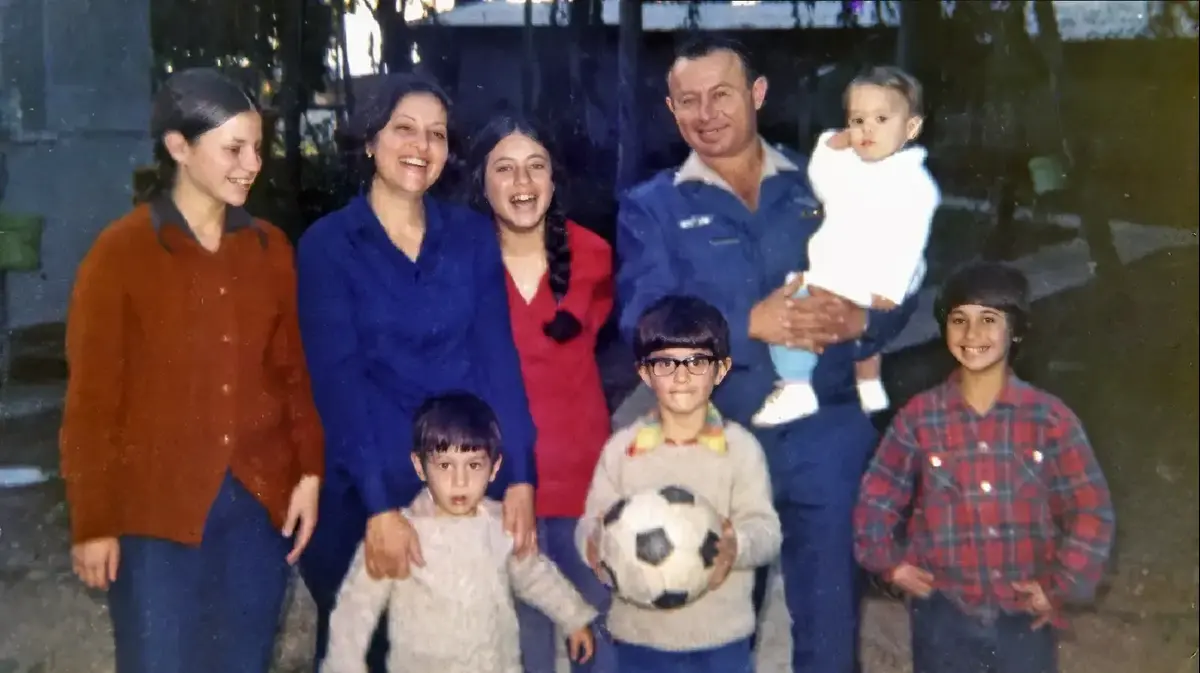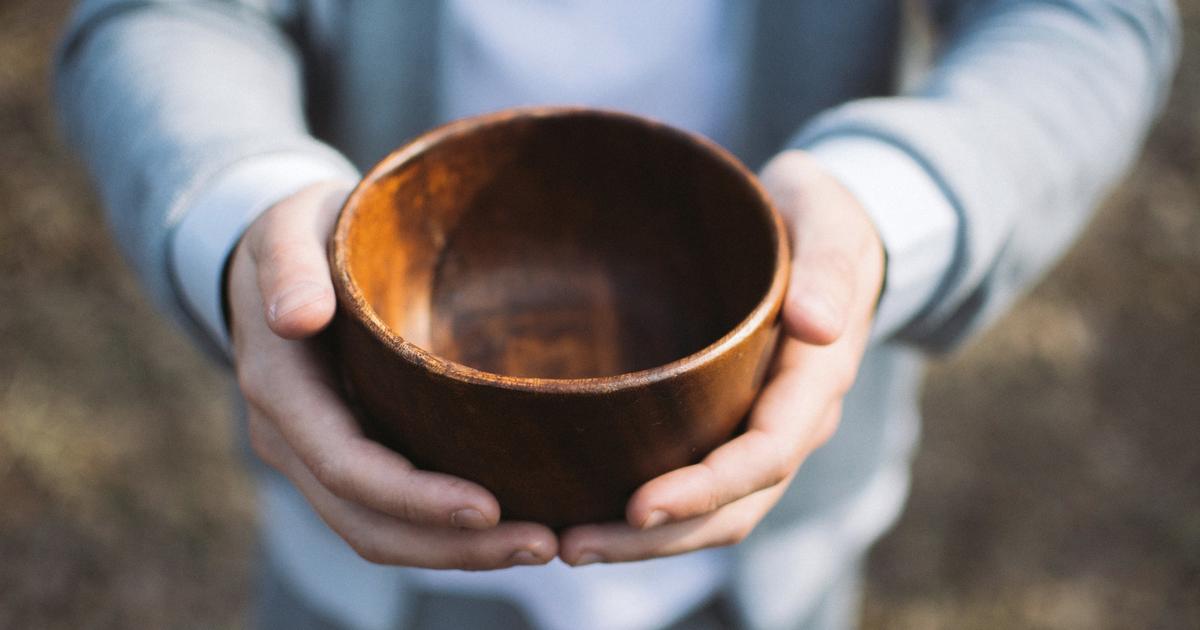In the coming days, Yom Kippur will be celebrated by Jews in Israel and around the world. To whom do they confess their sins on this day? How should the custom of atonement be performed? And is it permissible to wash the face and read newspapers and sandal books during the fast? In preparation for Yom Kippur, we made an order in the laws of the day the saint
before Yom Kippur
First of all, it must be remembered that it is a commandment from the Torah to return to Hashem, by confessing our bad deeds and repenting of them, as well as accepting ourselves for the future not to repeat the sin.
(Deuteronomy 3, Rambam 10 Tshuva). Therefore, it is appropriate for everyone to prepare a list ahead of time in a notebook, of the transgressions that he remembers from the past year, and of bad habits (Rabbi Yona, Rish Shaarei Tshuva). And to confess from the notebook during the fasting prayers.
How do you answer?
He acknowledges his sin, confesses it with his mouth, leaves the offense and does not continue it in the present, regrets the offense in his mind, is ashamed of it in his heart, and undertakes not to repeat it in the future (from the Resh Halachot Tshuva).
In the mitzvah between a person and a place, one must confess to God, and not to detail the sin to others (Yoma Fu:), but if his sin has become public, it must be announced in public that he has repented (Rabbad 106: Repentance). before God, and it is appropriate to publish his answer to others.
If he has harmed a friend but his friend does not know, such as if he has spoken defamatory language about him (which harmed him. Hefetz Chaim Clal D.A.K.Mach), if he estimates that the friend will not be hurt any more by learning of the sin, he must ask for his forgiveness. But if he estimates that the friend will be angry and offended by the knowledge The offense against him, one should refrain from asking for forgiveness.
In any case, he must pay for what he harmed, and he will do everything to prevent further harm.
Saying forgiveness at the Western Wall.
Preparing for Yom Kippur, photo: Sharia Daimant/Archive
It is appropriate to become more strict about the kosherness of food during the ten days of penance, such as refraining from eating non-Jewish bread and non-Jewish milk, even those who make it easy on normal days (Rabbi in the name of Yerushalmi Shabbat 23)
Yom Kipur evening
It should be emphasized that it is forbidden from a halachic point of view to activate or broadcast or view the Zoom application during Yom Kippur.
Also, it is forbidden to turn on a loudspeaker in the synagogue.
The custom of atonement: some great ones abolished the custom due to the similarity to the customs of idolatry (Ramban and Rashba in Shu'at 1 Shatza, as well as a ruling in Shu'a Tara). Indeed, we usually make atonements for a rooster or for money (the value of a rooster - About twenty shekels).
It is allowed to make atonements on the credit card or through Paybox and Bit applications by donating online through them.
Turn the card/cell phone over your head as if it were money, and mean the amount of the donation when saying the atonements.
If he practices this way, he won't say "those who are wronged will go to charity" but "the amount I directed will go to charity".
The custom of atonement with money in the Mahane Yehuda market, photo: Oren Ben Hakon
A mitzvah to dip in a spring or a mikvah.
(Rash Yoma 18 24 in the name of Rasg). One should not bless the baptism (Rash there, not as Rasg). Those who cannot be baptized, will shower with a continuous shower of "nine water cabins" (four minutes in a moderate stream ).
It is a mitzvah to eat as much as possible on this day, especially delectable foods (Yoma Pa:, Rash Shem, Shu'a Tarad and Sh'Nav SKA, and not as Rambam). Some have explained that the Torah seeks to make our fasting easier by eating 28 1844), and some have explained that the Torah came to make it a little difficult for us on this day as well (Aruhash 1844).
prayers
You pray a minach early before a meal that breaks, and during the minach you say a confession in the spell prayer, but not in the repetition of the Shatz. If you forgot to say the confession and remembered after a meal from a break - you must say the confession before dark (according to Rabbi Yoma Paz).
The person who prays alone on Yom Kippur does not say the 13 measures of mercy in forgiveness. And if he wants to say them according to the Bible, he is allowed (the Gra Nebantzal).
Candles are lit in the blessing (of Yohak), and also that we have lived, as written in the cycle. In addition, a soul candle must be lit, since the Havdalah is made on a candle that has been burning all day. The father (and some also practice the mother) blesses the sons and daughters, as written in the cycle. The children are kissed by the parents' hands After the blessing (the writings of the Ari).
A Jew praying at dawn, photo: Getty Images
We wrap ourselves in a tallit before sunset as a blessing, the ancient Ashkenazi custom of walking with a "kitel" (white robe) or in white clothes to resemble angels and to remind us of the day of our death and inspire us to repent.
It is the custom of the Ashkenazim to say "Tefila Zachah" before every vow.
Men do not wear gold color in their clothes (due to the sin of the golden calf).
A person who is forced to pray alone in his home and not in the synagogue, will adjust the time of his magic prayers, so that it will roughly correspond to the time when this prayer is conducted in his permanent synagogue, and this is a kind of prayer in public.
The laws of fasting
The fast begins in the evening (Leviticus 23).
Five things must be avoided on Yom Kippur: eating and drinking, washing, ablution, wearing sandals, and sexual intercourse.
(Gm. Yoma, Rambam PA 84. In the opinion of the Rabbi, everyone is madrbanan except for eating and drinking, and in Rambam's opinion everything is Madoriyata).
It is forbidden to do work on Yom Kippur (including transferring from fire to fire).
(Leviticus 23)
A woman giving birth, pregnant, and a patient who has difficulty standing - are allowed to bathe in their own way, not for pleasure but for health and cleanliness.
(Rambam PG 52, Arusha Tarig Sat 9).
Pregnant women are required to fast according to Halacha as long as they feel well,
For those who find it difficult to fast, it is permissible to chew flavorless gum on Yom Kippur, but it is appropriate to make it worse (from the meaning of the Maga 16. and K.H. it got worse there even by swallowing saliva).
Bathing for pleasure should be avoided (Shu'a Tarig). But washing for cleanliness is permitted by the principle of the law (Rishonimin, Maga ibid. SKA).
Washing for cleanliness and pleasure together (such as hot water on a dirty face) is prohibited (from the meaning of the Rama'a, Shem 34).
A bride who got married within thirty days before Yom Kippur may wash her face as usual despite the fast.
(Yoma Ag:, Shu'a, Mark Tarig, Section J).
It is appropriate to avoid wearing deodorant on Yom Kippur.
And whoever this would bother him or others, can apply a spray, but will avoid ointment.
When necessary, it is permissible to clean the hands with alcohol gel, for cleaning and not for pleasure, and there is no prohibition of lubrication or washing (the Graha will be used)
Whoever has wounds on his head, etc., is allowed to put oil there for relief like every day.
(Sho'a Siman Tarid).
Some make it strict not to wear comfortable crocs and root sandals (according to Sha'rat Takand Skia, and from Sh'nav there Saka), but in principle it is permissible.
(Aruch Ha-Shulchan Shem 90, and 24 HaGrash 7). Even small children should avoid wearing leather sandals on Yom Kippur (Yoma 18:). Leather shoes are not permitted on Yom Kippur (Grash 7).
A woman who gave birth within thirty days before Yom Kippur is allowed to wear leather shoes (Yoma 18:, and there are those who wanted to make it worse these days, there are comfortable rubber shoes, Net'ag PMZ).
Touching between the couple at night should be avoided, but during the day the stick with touching has something to rely on.
(The 16th Tartu SKA, the Arusha Tartu SA, unlike the Maga and Shannav which worsened).
It is allowed to read sand books that do not contradict the essence of the day, photo: Ami Shoman
It is permissible to bathe children on Yom Kippur if necessary, in lukewarm water, but not hot.
(Behind the Maga Tartez SKA, and from Shnab ibid).
Children up to mitzvah age are exempt from fasting, but they must be taught to fast a little.
Boys from the age of 12 and girls from the age of 11 who are healthy and able to fast, usually fast properly (Bah and Maga Saskov), and some have made it easy for them to fast a complete fast only from the age of mitzvot (Hagash 7).
Ashkenazim can read books of sand that do not contradict the essence of Yom Kippur (of course only when they are not in the synagogue praying, and when they are unable to study Torah, etc.).
For the Sephardi, those who find it difficult to fast and need distraction and ventilation to persevere in it, it is possible to make it easier for them to read books of sand (which do not contradict the essence of the day).
As for newspaper, it should be avoided.
And in times of need, if you read without the ads, you have someone to rely on.
Those who are exempt from fasting
A woman with a normal pregnancy must fast.
A woman who is pregnant at any stage, feels severe headaches or is vomiting, is allowed to drink immediately in moderation, and if that is not enough for her, she is allowed to drink without limit.
A pregnant woman who has started regular contractions or water loss, will drink freely, even if she does not have any pain.
And if you feel the need to eat, eat.
(the 7th grade)
A woman who gave birth within three days of Yom Kippur (counting 72 hours from the birth), is forbidden to fast.
(Sho'a Tariz SD)
A woman who gave birth seven days before Yom Kippur, if she or a doctor wants her to eat and drink, eat and drink
In class, and if it's not enough, she eats and drinks as she sees fit.
(Shabbat Kecht. And Shu'a Teriz S.D.).
A woman who has had an abortion after forty days of pregnancy is considered to have given birth as above.
A nursing mother who is afraid that the milk for the baby will decrease if she fasts, is allowed to drink for a while (the Torah of the mother in the name of Chazoa, and the testimony of the Gra Nabitzel in the name of Gershaz).
Nurses and doctors in the wards save lives, who wear masks and cumbersome clothes that cause sweating - if professionalism decreases due to fasting, then when they feel weakness or a decrease in professional function, they drink to class (the GRA will be used).
Members of the medical staff can drink if they feel that fasting harms their professionalism. Photo: Gideon Markovitch
A sick person in danger drinks and eats immediately, and even such a sick doubter will not bother to look for a rabbi but will eat immediately.
(Vicera 18, Yoma Febv, Shua Tarih 60).
However, during the fast they will not eat sweets and other foods that are only for pleasure (Solomon's Walks 6:7).
A patient without danger, who fasts and feels that if he does not eat he will endanger his life, eats and drinks in moderation.
(Sho'a Tarih SA)
A person who drinks and eats for hours, will eat the volume of a small matchbox measuring 30 cm3, (or weighing 30 grams in Sephardi), every seven minutes (R. Haim Naa Sha'at 3, Arusha Tarih CD. And some say every five minutes - Gerad Lior). And drink less than the volume of one side of a full cheek (for an average person - about one-fifth of a disposable cup), every seven minutes (Sho'a Tarih Sz7, and some say every 5 minutes - Gerad Lior ).
It is better to eat and drink nutritious things (Osh innovations).
In times of stress when the lessons are not enough, it is better to drink and eat every four minutes (and two minutes) than continuously.
If there is a medical need to drink at an even higher rate, it is permissible to drink every five seconds, and this is better than drinking continuously (according to the Rambam's method in the Hebrew Bible, and in the Hebrew Bible - as the fourth of the log. Sephardim can rely on this method for drinking lessons Basically, if you have trouble waiting 5-7 minutes).
A patient who is not in danger can take pills without water in times of great need.
(Agm Okh Hg Cha)
A patient who is not in danger must fast as usual.
This includes normal headaches, general weakness and the like.
When in doubt, ask one of the doctors in the community.
He forgets and blesses a meal, and immediately remembers that it is Yom Kippur fasting, he will not eat.
Rather, he will say 'Blessed is the name of the glory of his majesty forever and ever'.
The food on Yom Kippur does not make kiddush, but it will be added to the blessing of the food (Sho'a Tarih 66), and he can go up to the Torah except for a mattir and a mencha (Sho'at Reka'a Sakhad). But if he ate only for Shirin, he can Also go up to the mattir and minach (Solomon 4:6).
Yom Kippur
In the morning, take your hands up to the knuckles.
(Thus Yoma ez:).
The priests take as usual in the morning prayer.
If you have kept clean, you do not have to take the supplement again (according to the Arusha Tarig SD in the name of Rambam).
But in the closing prayer, it is taken again due to the break.
We are assured by Hashem that Yom Kippur itself atones for those who return in repentance, and therefore it is worthwhile to concentrate strength and effort in the day's repentance, even if it is difficult.
During the experience during the order of a high priest's service, a paper or towel must be placed so that they are between the head and the ground.
A carpet of the High Court is considered a ruling.
It is allowed to talk during the fast about eating foods while fasting.
If he finds that the fast is difficult for him and cannot pray, it is better for him to lie down and not break the fast, even if he misses a prayer in the minyan.
The Yom Kippur prayer during the Corona quarantine days in 2020, photo: E.P
The person who takes care of the sick members of his family, for example his children or his wife, may leave the prayer in the synagogue to help them, but will remain in the synagogue for the prayer of the spell, and for the reading of the Torah (Hagared Lior). "A we will be redeemed).
The fast is over
At the evening of the breaking of the fast, they say "You are our gift"
and sanctify the white even though we have not yet eaten, as we rejoice in our atonement. (Last)
after the holiday and the Havdalah, it is customary to make an act of building a Sukkah, even a symbolic one (Aroshash, Graa), and eat With joy (Rama Tarkad 65)
the
next day we rise at dawn a little earlier than the usual time.
were we wrong
We will fix it!
If you found an error in the article, we would appreciate it if you shared it with us









